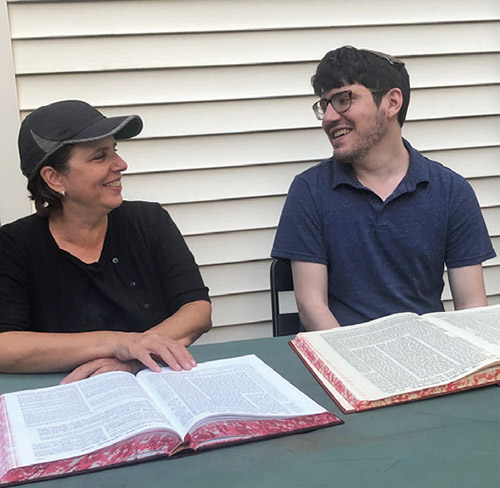
The coronavirus has been affecting communities throughout the world for more than four months and has forced many of us to find ways to spend our free time.
However, it’s also a happy coincidence that Daf Yomi’s most recent cycle had begun shortly before COVID-19 disrupted daily life as we knew it. I had started learning the previous cycle, but after finishing Maseches Brachos, I quickly fell behind before ultimately stopping altogether. When the first day of the current cycle approached, I promised myself that I would persist for as long as possible with the hopes of actually completing shas after seven and a half years.
There was only one problem: I needed to find a study partner. My previous foray into Daf Yomi assured me of the need for a consistent chavrusa in order to maintain a daily routine. However, I couldn’t immediately think of any potentially viable candidates to join me. Undaunted by this, I plunged ahead and began learning Brachos. During one of the first few days, my mother agreed to learn with me. That day went well, but I did not expect this seemingly random occurrence to transform into a consistent pattern. To my surprise my mother continued to learn with me, and my individual Daf Yomi enterprise became a joint venture.
Despite not possessing prior experience learning Gemara, my mother (armed with a trusty Artscroll Gemara) has been able to follow along and often asks incisive questions that challenge my own thinking. Now that we’ve reached Maseches Shabbos, our learning often takes us on tangents wherein we discuss how the Gemara conforms to our preexisting halachic knowledge. For example, contemplating the sugyos regarding which types of knots can be tied on Shabbos and which implements are permissible to carry brings the Gemara to bear on our religious practice. In a similar vein, learning with someone who is well versed in the halachos of preparing food on Shabbos greatly enriches the process of exploring the sources from which those laws are derived. My mother was able to perceive connections between those sugyos and her Shabbos observance in ways that I could not.
I’ve felt the value of learning Daf Yomi with my mother most deeply on an experiential level. I had never learned Torah with my mother before for any significant amount of time, so it has been very moving to connect with her in the context of studying our traditional texts. Especially while lockdowns and general social isolation are underway, it’s very meaningful to carve out a space for consistent, collaborative learning when not everyone has that opportunity.
It’s particularly fitting that Daf Yomi is the vehicle for our learning together. People often talk about Daf Yomi’s capacity as a unifying force, and I feel that very strongly every time my mother lets me know when she will be available to learn on a given day. The notion that thousands of Jews across the world are grappling with the same texts carries more weight when traditional avenues for genuine human connection are currently unfeasible. While the circumstances surrounding our Daf Yomi experience are less than ideal, I am thankful for the opportunity I’ve been given to forge a meaningful bond with my mother through our shared commitment to Judaism and Torah.
Yosef Press is a rabbinical student at Rabbi Isaac Elchanan Theological Seminary. He currently resides in Teaneck, New Jersey. He can be reached at [email protected]










